Building a Collection #76
Clarinet Quintet in B minor, Op. 115
By Johannes Brahms
____________
“Without craftsmanship, inspiration is a mere reed shaken in the wind.”
– Johannes Brahms
Welcome back to Building a Collection, my series on the greatest 250 classical music works of all-time. We return once again to Brahms, this time at #76 on our list with his Clarinet Quintet in B minor, Op. 115. The quintet received its first public performance on 12 December 1891 in Berlin, and its substantial length and sophistication for a chamber work have given it a special place in the heart of many musicians and listeners.
Johannes Brahms
Johannes Brahms (b. 1833 – d. 1897) was a German composer of the Romantic era and is generally regarded to be one of the greatest composers ever. Even though Brahms was from the Romantic era, he was very much connected to the Classical forms as seen in the works of Haydn, Mozart, and especially Beethoven. In that sense, Brahms represented a “conservative” approach to musical tradition at a time when form and convention were changing due to Wagner and others. Brahms wrote symphonies and other orchestral works, chamber music, concertos, keyboard works, vocal, and choral music.
Brahms was from a musical family in Hamburg and showed a great deal of promise even at a young age. He began as a pianist and would often perform around Hamburg in eating and drinking establishments. By adulthood, Brahms had become friends with well-known musicians of the time. He befriended the violinist Joseph Joachim, a relationship that would be personally and artistically important throughout his life. But perhaps most important was his friendship with the famous composer Robert Schumann. Schumann, twenty-two years older than Brahms, became his most fervent advocate. Brahms likewise had tremendous esteem for Schumann. Brahms practically became a member of Schumann’s family, and after Schumann’s death at the too young age of 46, Brahms continued to be close friends with his widow, the pianist and composer Clara Schumann. Brahms never married, although he apparently had several romantic relationships throughout his life. There is speculation about whether Brahms and Clara were more than friends, and there is evidence that Brahms was probably in love with her.
Many of Brahms’ compositions have become universally known, and many are perennial favorites that are frequently programmed by orchestras around the world. As part of the “Big 3” of Bach, Beethoven, and Brahms, he occupies a central place in the history of classical music. My personal favorites by Brahms include his Symphony no. 1, Symphony no. 4, Ein Deutsches Requiem, Piano Concerto no. 1, Violin Concerto, Haydn Variations, and his Piano Trio no. 1.
Clarinet Quintet in B minor
Brahms composed his Clarinet Quintet in 1891 especially for the clarinettist Richard Mühlfeld. Mühlfeld performed the premiere with the Joachim Quartet privately in Meiningen and then publicly in Berlin. It was written for the Clarinet in A rather than the B♭ clarinet, the two instruments being a semitone apart in pitch. In terms of form, Brahms seems to have used Mozart’s Clarinet Quintet as a model. In addition, Brahms was toward the end of his composing career, and the work has a rather wistful and autumnal mood. Also, while some performances today stress a lack of vibrato by the clarinet and quartet, there is good evidence that Mühlfeld himself used quite a lot of vibrato, as did the Joachim Quartet.
What appeals to us about Brahms’ Clarinet Quintet? For one, the length of the piece is as long as many symphonies, and so Brahms was able to incorporate many musical ideas in a range of emotions. But unlike the symphonies there is more intimacy, and Brahms uses the form to dig deeper by giving voice to his lonely and melancholic state. There is no denying the pain, loss, and sadness in this music, neither the way the composer communicates his feelings directly. Other words I might associate with the quintet are brooding, tender, and even whimsical at times.
At the time Brahms wrote the quintet, there had not been too many chamber works written for the clarinet. But the timbre of the clarinet set against the strings allows Brahms' writing to take full advantage of how the clarinet contrasts with the quartet, almost like a lone voice rising above and falling below the prevailing background. He also takes advantage of how the clarinet is able to have a virtual dialogue with the strings in this format.
The structure of the quintet is as follows:
Musicologist Kai Christiansen comments on the quintet’s movements online at Earsense:
“The first movement is a lengthy sonata of sweeping breadth where the initial theme appears in several closely related variations throughout with vivid contrasts between the powerful string ensemble and the intimate charm of the vulnerable clarinet. But this is anything but a concerto: Brahms handles his textures with great finesse using the clarinet as a deftly blended ensemble partner, a streak of special color, an occasional soloist while easily making way for other soloists to surface in an ever fluid mix.
The otherworldly adagio is undeniably the center of the quintet. A languid nocturne softly dreams of a warm summer night with a muted sheen of strings and the clear reedy bell of the clarinet sustaining long, quiet tones. The reverie all too soon gives way to a much darker mood full of tension, protest, anguish and the resignation of despair. The essence of painful loss is clear as summer turns to autumn, love to loneliness, music into silence and life into death. The clarinet takes center stage here with its full tonal and expressive range pushed to the edge of piercing stridency. The nightmare dissipates, the soothing veils of twilight return and tender nostalgia resumes, an aching quality accentuated by the bruise of stabbing, fleeting anguish.
Two–thirds of the quintet passes within the first two movements. Brahms concludes the work with two much shorter movements that almost bind together into a single continuum. The third movement andantino initially comes as a surprise; instead of a lively scherzo, one finds a moderately paced song, a vintage Brahms melody. This is a framing device that serves to introduce and conclude a lively scherzo nestled within that dances and dazzles with Mendelssohnian fleetness and Brahmsian muscle. If the pause between this and the finale is brief enough, the sensation is of a theme and variations where the scherzo supplies the initial theme. The last movement is a "self-contained" theme and five variations where Brahms continues with his gift for constant ingenious variation as well as his penchant for a kind of cyclic reflection. Eventually, the very first theme from the opening movement returns as if it perfectly dovetails with the music three movements later. In a single gesture, Brahms reveals a powerful kinship between the end and the beginning drawing everything in between into a tighter embrace of interrelationships.”
Recommended Recordings
I readily confess to less confidence in my recommendations for Brahms’ Clarinet Quintet than for some other works I know better. As is the case often, there are many splendid recordings of this work, but I have tried to sift through the pile to find the best. Having said that, there is always room for more if you don’t see your favorite recording below.
The 1937 recording with Reginald Kell and the Busch Quartet, particularly the Testament label version, is remarkable for its intimacy as well as its natural and elegant mood. Kell’s clarinet tone is smooth and heartwarming, and the Busch Quartet (likely the greatest quartet in the world at the time) play with a rapt sensitivity which captures just the right amount of sentimentality for this work. It is a gorgeous performance. The Testament issue eliminates most of the surface static and hiss, revealing the true greatness of this interpretation, though some listeners may opt for more modern sound.
Karl Leister probably recorded the Brahms Clarinet Quintet more than any other clarinettist, and for years his 1967 recording with the Amadeus Quartet on Deutsche Grammophon was one of the reference versions. It still sounds great, though not as lush and refined as Leister’s recording below with the Leipzigers. But it has plenty of character, and Leister’s controlled, smooth tone is there. He really knew how to make it sing, and had supreme control over dynamics as well. In its time, the Amadeus Quartet were one of the finest quartets in the world, and even though they disbanded in 1987, they left a treasure trove of recordings. I like the ambience around the recording, with the sound not too up close but still detailed. The ensemble produces plenty of warmth, but not at the expense of drama and agility.
The 1972 account from the Berlin Philharmonic Octet (members) and clarinettist Herbert Stähr Universal has many of the same characteristics as the Amadeus performance above, and has somewhat better sound. Stähr has a lovely tone which blends ideally with the other BP octet members, and they play with subtlety and a romantic touch. The Adagio is lovely but never self-conscious, and the Andantino has just the right amount of playfulness. The Con moto bristles with yearning but also with rhythmic bounce in the central section. This gets a solid recommendation.
The 1983 recording featuring Thea King on clarinet joined by the Gabrieli String Quartet on Hyperion brings a committed vision of the work as a darkly romantic work, and they are aided by full and lush sound. You will hear plenty of vibrato here, and phrases are caressed lovingly. The melodic line is given full voice, but the counterpoint phrases are not shortchanged, and the quintet play with plenty of passion. The Adagio is frankly haunting in its colors, but in the best way. The Andantino is more subtle than some other versions, but King in particular is delightful here, and the strings are ravishing. The sound from St. Barnabas Church in London is top notch with nice bloom.
American clarinettist, conductor, and composer Charles Neidich is joined by the Juilliard String Quartet on their splendid 1995 recording on Sony. The Juilliard sounds terrific here, there is an opulence to their sound which captivates. Neidich’s performance is relatively conservative, certainly in the mainstream in terms of tone and character. But dramatic moments are highlighted well, and the poignancy of the Adagio is very effectively communicated. Tempos are on the broader side, but that only serves to enhance the melancholy nature of Brahms’ score. I would not be surprised if this one tugs at your heart.
The 1996 account on the MDG label with the Leipzig String Quartet and clarinettist Karl Leister is on the lusher and more romantic side, but gosh the whole production is sophisticated and thoughtful. Leister’s tone is heavenly: full, open, and resonant. He and his Leipzig mates draw inspiration from each other in a reading of appropriate color and drama which never tries to go overboard on the pathos. The sound is rich and marvelously detailed from MDG. You will find some more dramatic readings, but it is doubtful you will find a more beautifully played or characterized one.
Also from 1996 is the recording from the Emerson String Quartet and acclaimed clarinettist David Shifrin on Deutsche Grammophon. This is a warm and inviting recording, teeming with passion and personality. Shifrin in particular brings something special to this recording in my view, and his role is perhaps more conspicuous than clarinettists on some other recordings. But the musicianship here from all involved is beyond reproach, this is clearly a deeply thought out and prepared performance. It is also firmly in the more romantic camp, making the most of the sentiments in the score. At one point in time I remember almost being put off by the Emersons sound being a bit too clinical, but there are none of those concerns here. The sound from the American Academy of Arts and Letters in New York is outstanding.
The 2007 recording from clarinettist Karl-Heinz Steffens and the Scharoun Ensemble Berlin on the Tudor label finds a nice balance between the lush sonorities and the dramatic contrasts. Rhythms and accents are more articulated than with the Leipzig recording above, as good as that one is. The recording balance here is also a tad more forward, with superb details to be heard. Steffens has a brighter, more conspicuous tone than Leister too, which is a good thing when played with the sensitivity of Steffens. The ensemble and Steffens seem to be of one mind and provide us with a high bar in terms of unity and singleness of vision. While Steffens reminds me a bit of Fröst (see below), this reading is significantly warmer and more emotive, and perhaps more of what we expect from the “autumnal” Brahms.
A 2011 album titled A Tribute to Danny Granados contains one of the most recommended recordings of Brahms Clarinet Quintet performed by Danny Granados and the Fidelis String Quartet on the Delos label. Granados’ clarinet is suave and beguiling, and the Fidelis Quartet are equally passionate and expressive. Danny Granados, who passed away in 2018, was not only the Chief Financial Officer of the Houston Symphony, but was also an accomplished clarinettist. Granados is one of the best at finding the wistfulness and nostalgia in this music, and his tone is smooth and searching. The quartet are made up of members of the Houston Symphony, and they are equally adept at bringing out the moods and colors. The sound has a bit of an edge to it, but nothing bothersome. Very enjoyable.
I nearly overlooked the terrific recording from the German Mandelring Quartett and clarinettist Laura Ruiz Ferreres from 2012 on the Audite label. There is an amazing amount of expressivity from the quintet, and Ferreres ability to enchant with her tone and sensitivity to dynamics is particularly impressive. Tempos are brisker than average, but the group is still able to emphasize the emotional content with passion. Take the Adagio, which has to be one of the very finest accounts I’ve heard. This is played with more nuance and personality than usual, and that goes for the Andantino as well. The entire production is first-rate, and the sound is superb.
The 2013 recording from Swedish clarinettist Martin Fröst and the quartet of violinists Janine Jansen and Boris Brovtsyn, violist Maxim Rysanov, and cellist Torleif Thedéen on the BIS label is one of my favorite versions of more recent recordings. The strings are light on their feet, and don’t use too much vibrato, but this is a thoroughly modern performance. Fröst has a pure and light sound as well, also with not too much vibrato. But his phrasing has a nice amount of light and shade, and the way he and the quartet are able to play at the softest levels is astonishing. While the work’s fall to winter qualities remain, the darkness and heaviness sometimes associated with Brahms are nowhere to be found. I also admire how well all the members play together, with nobody dominating, including Fröst. A real pleasure.
Yet another wonderful version comes from the Danish String Quartet and clarinettist Sebastian Manz, recorded in 2014 on the BR KIassik label. This is a deeply felt and immaculate performance, with less vibrato from Manz (similar to Fröst), though Manz has a warmer tone. The quartet are more intent on the overall sound palette than in sharp contrasts, and I find the effect to be somewhat cooler than on some other versions. Having said that, they play with incredible sensitivity and phrasing, with inner detail being revealed more than I had noticed previously. The sense is the group has thought out very well where and when certain strings come forward, and when to back off. Likewise, the clarinet is blended marvelously in the mix but can still be picked out easily when listening. After listening to almost my entire list of recordings, I went back to this one again and was struck again by how lovely this recording is, and how they accomplish it without being overly demonstrative. The sound is excellent.
I am fond of the 2015 recording on the Naxos label by the New Zealand String Quartet joined by James Campbell on clarinet. Campbell’s clarinet is bright and sonorous, but never harsh. The sense of camaraderie among the quintet is palpable, and the way dynamics are handled is delightful, with the push and pull highlighting the group’s cohesion. Tempos are mainstream, but while this work is repeatedly referred to as “autumnal” by many, this recording has an almost early spring-like quality at times with the freshness of the playing. Certainly there is plenty of pathos and poignancy, but the quintet never succumb to too much melancholy or schmaltz. The music is presented without extremes, but that doesn’t mean without personality. Indeed, there is a playfulness present which is enjoyable even amid some of the more stormy passages. The sound from St. Anne’s Anglican Church in Toronto is wonderfully resonant yet focused.
The Alexander String Quartet has recorded the Brahms Clarinet Quintet twice, and both are worthwhile. But their second recording from 2019 on the Foghorn label takes the palm here, and they are joined by clarinettist Eli Eban. The Alexanders are one of my favorite quartets, as I cherish my complete set of their Beethoven quartets. This recording joins those as a prize, with the quartet playing with richness and extraordinary unity. Eban on clarinet has a relatively bright tone, but it also contains warmth and sweetness. His part is woven neatly into the whole, and the brightness of his tone nicely matches the quartet’s also somewhat bright string tone. The acoustic of St. Stephen’s Episcopal Church in Belvedere, California is generous and warm.
Finally we have the 2019 recording from the ensemble Meta4 and clarinettist Reto Bieri on the ECM label. This is a performance more in the modern vein, with a lack of vibrato from strings and clarinet alike, and with tempos marginally quicker. Textures are more open, accents are more accentuated, and the dialogue between musicians is keen and alert. The Adagio is serene and calm, but adroitly sensitive to shifts in mood. The Andantino has a quiet playfulness and a level of gracefulness I’ve rarely heard. The Con moto moves along gently, but the group enhances the drama significantly in the middle section, bringing a clarity and rhythmic flavor that is delectable. Bieri is sweet toned and deferential throughout, never taking over the proceedings, but also not afraid to step out as a first among equals. The sound is slightly distant compared to some other recordings, but clear and pleasing.
Honorable Mention
Whew! Wow, there are a lot of good recordings of this chamber masterpiece. Many of the honorable mention recordings below are also outstanding, and sometimes the differences between them are slight.
Stuyvesant Qt. / Gallodoro (Bridge 1947)
Fine Arts Qt. / Kell (DG 1951)
The Lindsays / Hilton (Chandos 1980)
Melos Qt. / Portal (HM 1990)
Stadler Qt. / Veilhan (Phaia 1992)
BSO Chamber Players / Wright (Universal 1994)
Talich Qt. / Cuper (Dolce Vita 1996)
Brandis Qt. / Leister (Brilliant 1996)
Melos Qt. / de Peyer (Warner 1998)
Alban Berg Qt. / Meyer (Warner 1999)
Verdi Qt. / Benda (haenssler 2000)
Arianna Qt. / Weingartner (Urtext 2002)
Fitzwilliam Qt. / Schatzberger (Linn 2005)
London Haydn Qt. / Hoeprich (Glossa 2006)
Capucon et. al. / Meyer (Warner 2007)
New Hollywood Qt. / Gray (Centaur 2010)
Carmina Qt. / Meyer (Sony 2010)
Hagen Qt. / Widmann (Myrios 2011)
Alexander Qt. / Lluna (Foghorn 2011)
Minetti Qt. / Schorn (DG 2012)
Tokyo Qt. / Beaver (HM 2012)
Jerusalem Qt. / Pavlovsky (HM 2013)
Michelangelo Qt. / Johnson (Nimbus 2013)
Pacifica Qt. / McGill (Cedille 2014)
Prazak Qt. / Severe (Mirare 2015)
Sharon Kam et. al. (Berlin 2015)
Phoenix Ensemble / Lieb (Navona 2017)
Aris Qt. / Johanns (Genuin 2020)
I hope you have enjoyed this installment of Building a Collection! Join me next time when we discuss Antonin Dvořák’s Cello Concerto at #77. See you then!
______________
Notes:
Christiansen, Kai. https://www.earsense.org/chamber-music/Johannes-Brahms-Clarinet-Quintet-in-b-minor-Op-115/.
Hoeprich, Eric (2008). The Clarinet. Yale University Press. p. 235. ISBN 978-0-300-10282-6.
Johnson, Stephen. Brahms's Clarinet Quintet: a guide to his chamber masterpiece and its best recordings. Classical Music. BBC Music Magazine. March 7, 2023. Online at https://www.classical-music.com/features/recordings/brahms-clarinet-quintet-guide-best-recordings.
Lawson, Colin (1998). Brahms: Clarinet Quintet (1st ed.). Cambridge University Press. p. 32. ISBN 978-0521588317.
Rochester, Marc. A Tribute to Danny Granados. Online review at https://www.musicweb-international.com/classrev/2019/Aug/Tribute_Granados_DE3562.htm.
Rodda, Richard E. "Quintet for Clarinet and String Quartet in B minor, Op. 115". Archived from the original on 2008-01-20. Retrieved 2008-07-21.
https://www.goodreads.com/author/quotes/72792.Johannes_Brahms?scrlybrkr=40ad99ec
https://en.wikipedia.org/wiki/Clarinet_Quintet_(Brahms)?scrlybrkr=40ad99ec




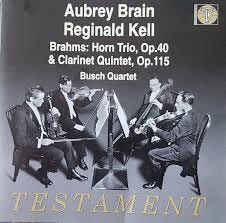
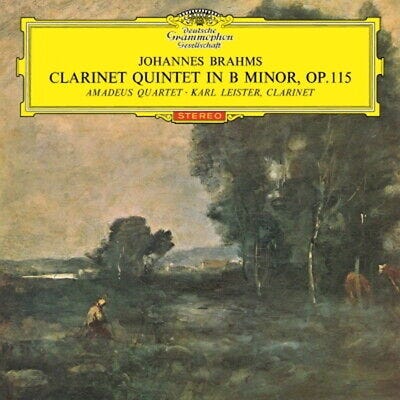
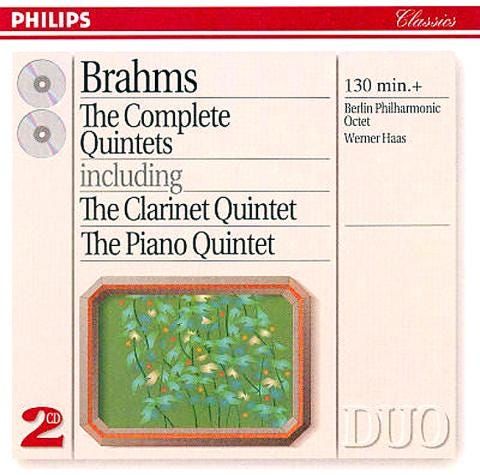

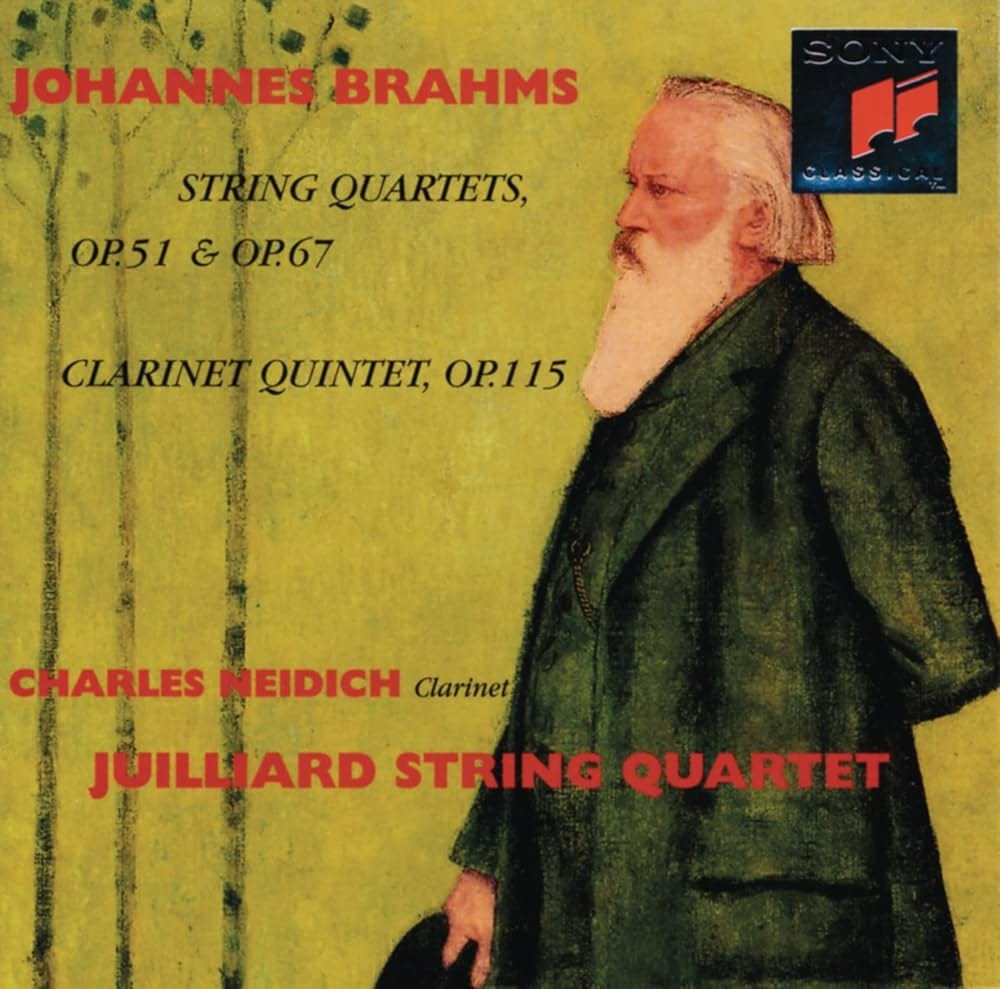
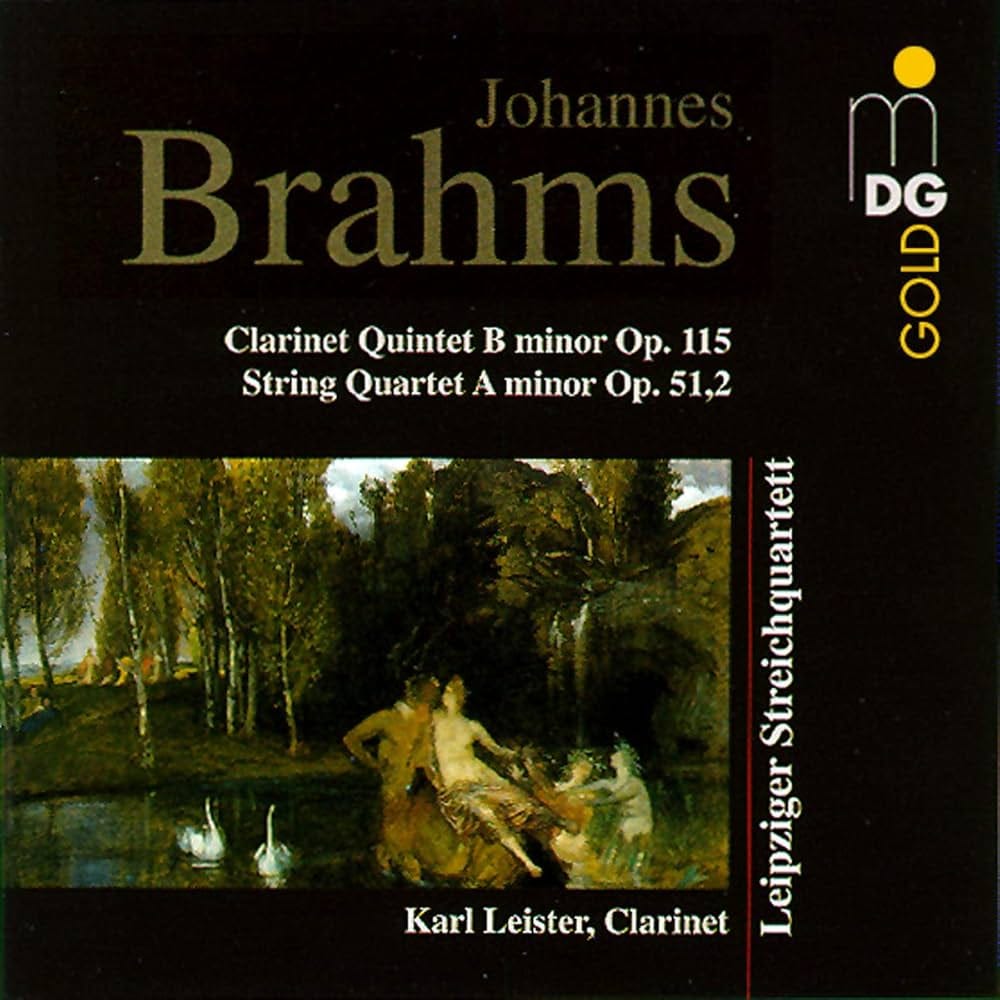


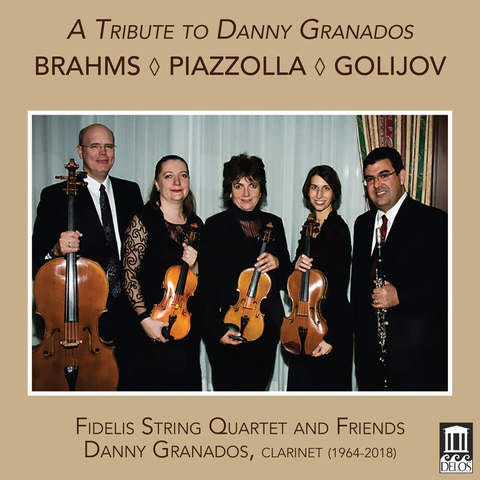
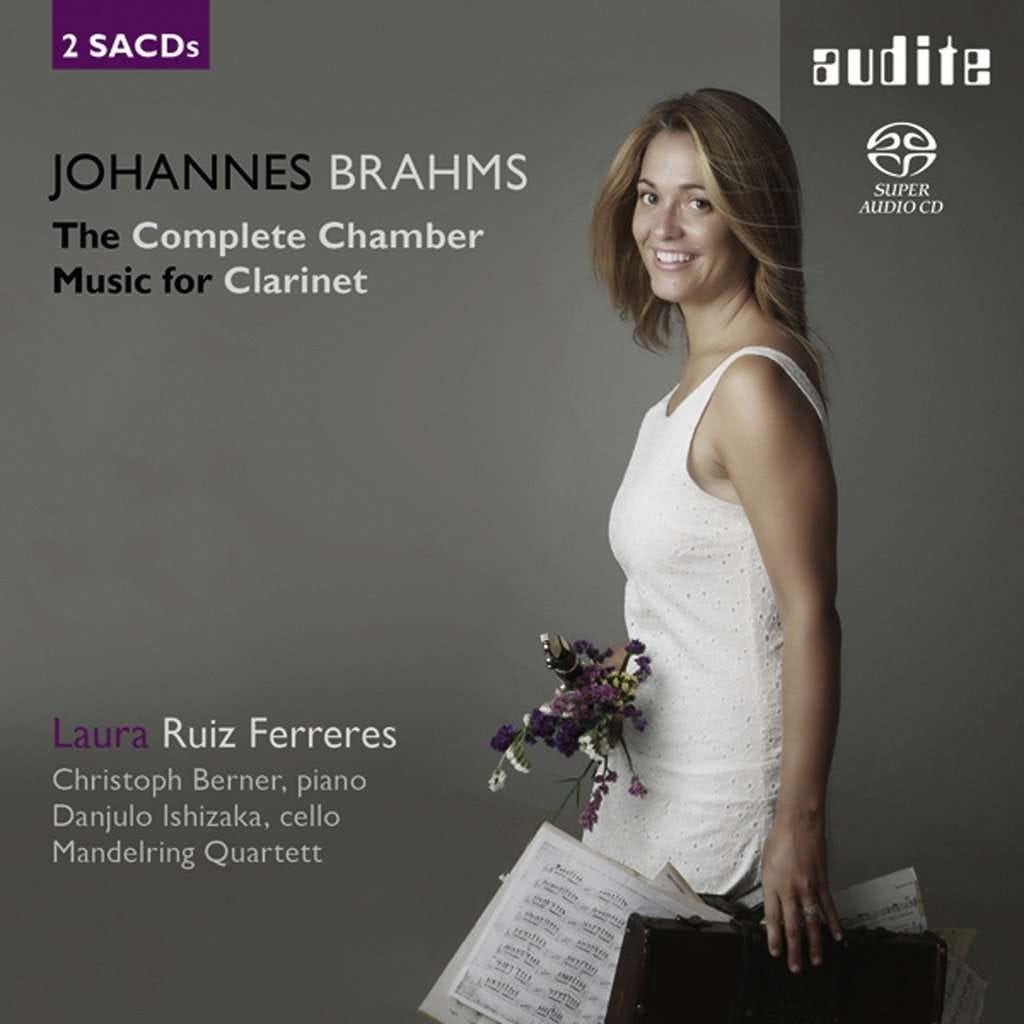
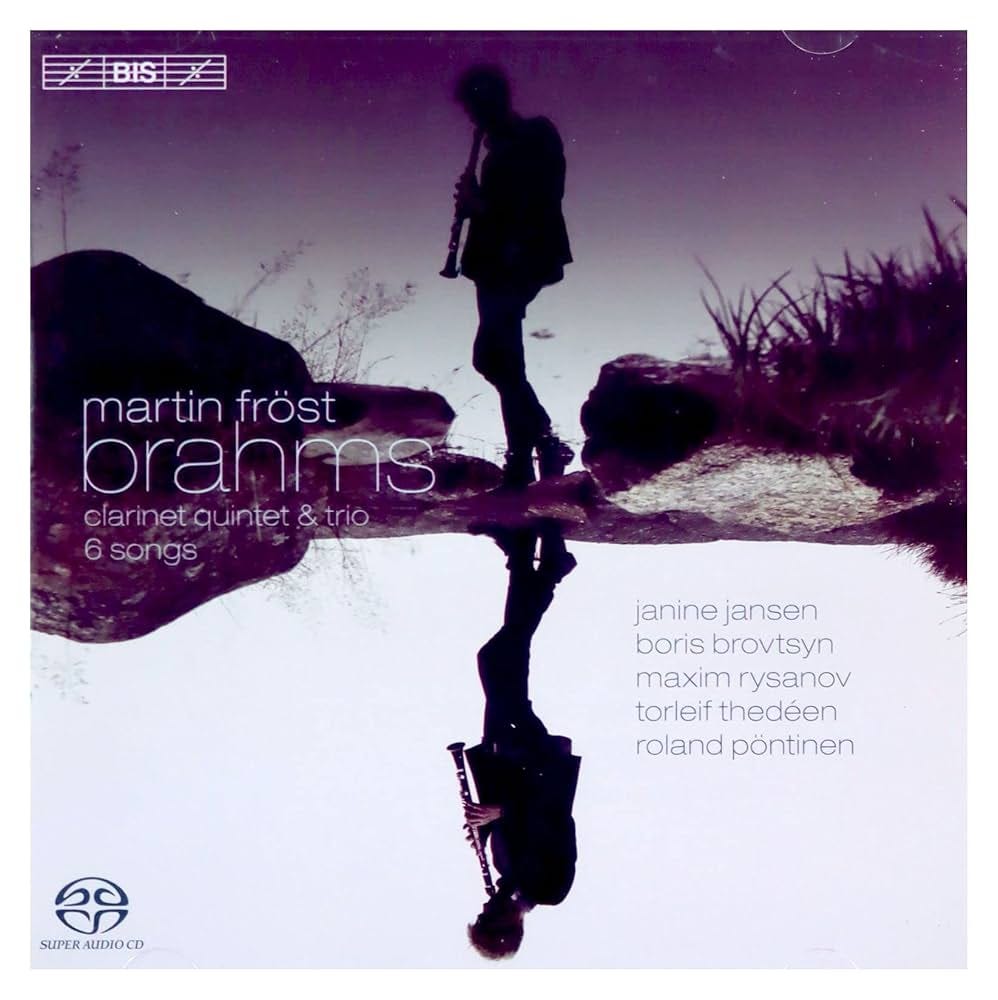


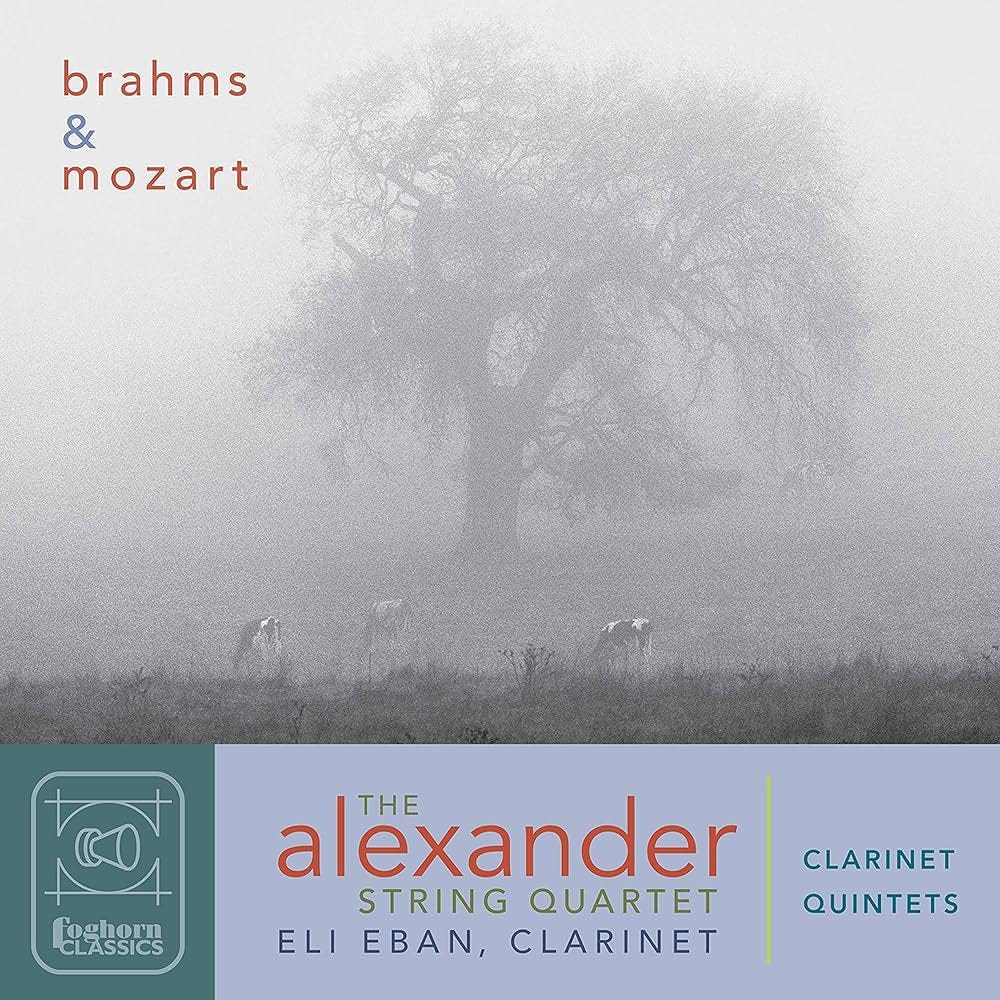
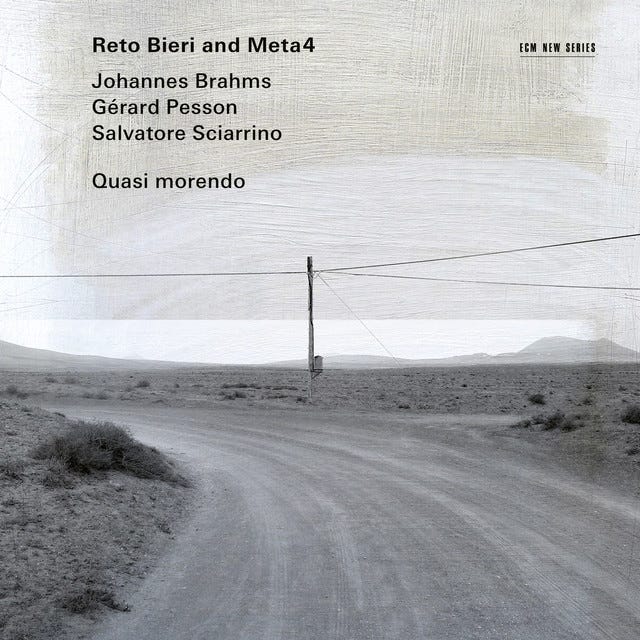
A masterpiece. There are no others words to describe this. Brahms is my favorite composer exactly for this kind of autumnal atmosphere that you can find in his music and in this piece in particular. I have many favorite version of the Clarinet Quintet and many of them are here. The first I have listen to was a rare, out of print, version of Alessandro Carbonare. He is now the first clarinet of the Orchestra of Santa Cecilia (Rome) and he recorded his wonderful version when he was younger for Harmonia Mundi France in a CD of the "Nouvelle Interpreter" series. A version to which I am sentimentally attached.
The night my father passed away I had a long drive home. Driving in the dark, I turned con the radio and WETA was playing a show of music recorded live from Wolf Trap. I was completely stunned by the music and its sense of loss and as you say, its autumnal feel. There was no announcement of what it was as I had entered the program after the work was announced. I called the radio station the next day since it was a special program and not on their playlist. It took someone there about a week to talk to the right person and let me know it was the Brahms Clarinet Quintet. I have never had a piece of music appear out of thin air and so perfectly speak to my particular state at the moment quite like that. It is powerful music that came to me right at the right moment. It helped me to grieve. Thank you for writing about it.